Participial adjectives ending in ed / ing Complete the questions with the correct adjective form of the words in parentheses 1 Are you (interest) in human biology? · The English language has a lot of adjectives Some estimates put the number at several thousand And while those numbers may sound frightening, adjectives can be exciting! · Adjective vs verb Another common difficulty is mistaking participial adjectives with continuous verb tenses or with passive voice verbs First, let's talk about continuous verb tenses These are formed with the verb "to be" the present participle So, participial adjectives ending in ING can look like a verb tense
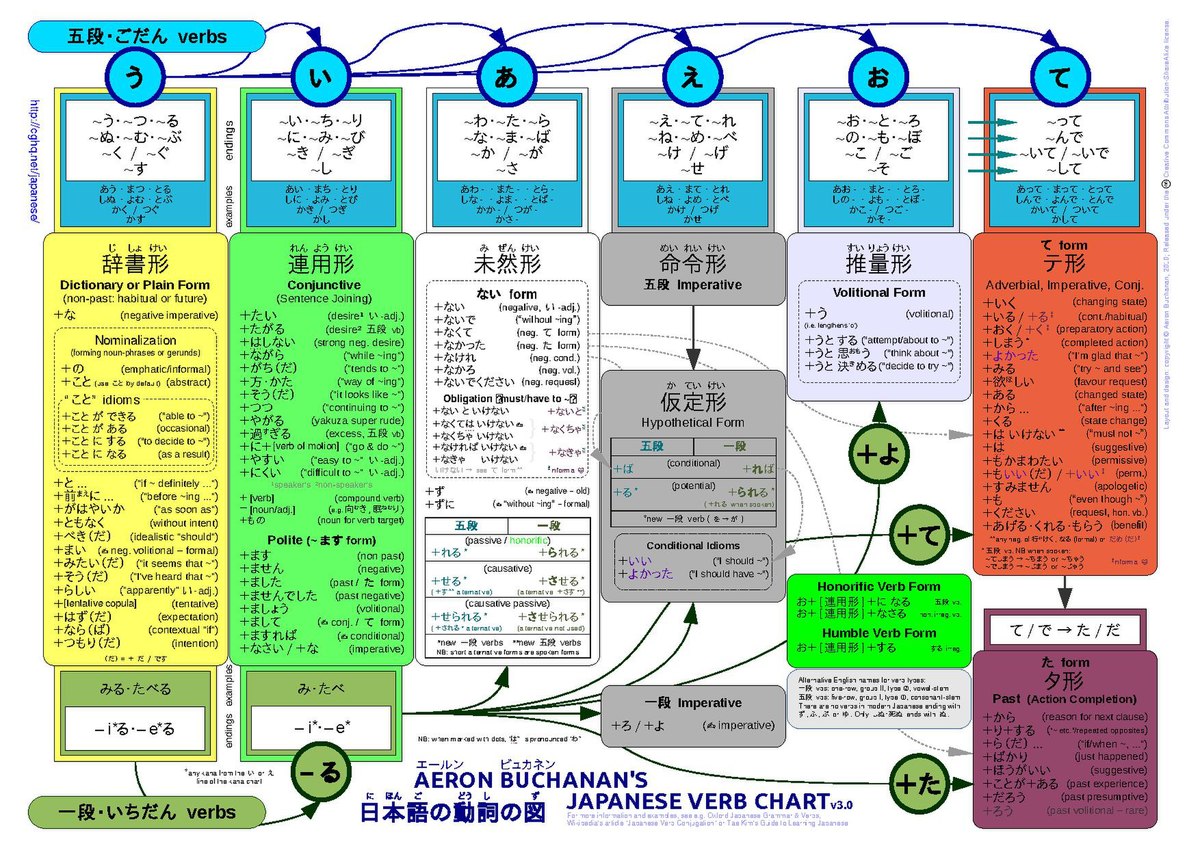
Japanese Verb Conjugation Wikipedia
What are participial adjectives
What are participial adjectives-21jun15 Vocabulary and grammar Practice on participial adjectives, either ending in ed or ing The list of adjectives given can be used for speaking purposes Key2 When do you feel (bore)?



1 The Subject The Man Walked Down The Street 2 A Participle Word Ending In Ing Or Ed Walking Up The Street He Tripped Pdf Free Download
When you use more than one adjective, you have to put them in the right order order of adjectives https//7eslcom/orderofadjectivUsing the verb in parenthesis, supply the correct adjective in each of the following sentences Type all of your answers in the spaces and then click on "Check answers" If you need help, click on "Show a letter" 1 When Christina was young, she felt (compel) to dance whenever she heard catchy tunes on the radioEd/ing adjectives Participial adjectives can be distinguished by their endings, either ed or ing They come from verbs and they are called participial adjectives because they have the same endings as verb participles Original verbs Many verbs that we can use to express feelings or emotion can be turned into adjectives
· Grasping when to use ED and ING endings with participial adjectives is very confusing That is, the adjectives are confus ing , and the students are confus ed !PARTICIPIAL ADJECTIVESIng and Ed related to emotive verbs Past participles Other participial adjectives of this type amazed amused annoyed bored charmed confused convincing damaged depressed disappointed When ing forms are used like adjectives or adverbs, they have similar meanings to active verbs falling leavesI'm doing a scrapbook from the taken pictures I'm doing a scrapbook from the pictures taken
Adjectives with ed or ing endings are known as PARTICIPIAL ADJECTIVES, because they have the same endings as verb participles (he was train ing for the Olympics, he had train ed for the6 Do you think science is (excite)?Participle Adjectives Short List ing adjectives ed adjectives alarming What an alarming noise!



17 Difference Between Participle And Gerund Ideas English Grammar Learn English Learn English Grammar



Present Participle What Are Present Participles
Participle Adjectives Some participles in either the present or past form (like 'interested' or 'interesting') can be used as adjectives These are used in a slightly different way from normal adjectives We usually use the past participle (ending in ed) to talk about how someone feelsThe participial adjectives are a type of adjective—a word that describes a noun They can be distinguished by their endings, either –ed or –ing They are called participial adjectives because they have the same endings as verb participles These participial adjectives are hard to distinguish because they often look like verbs, pastThe participial adjectives are a type of adjective—a word that describes a noun They can be distinguished by their endings, either –ed or –ing They are called participial adjectives because they have the same endings as verb participles These participial adjectives are hard to distinguish because they often look like verbs, past participles
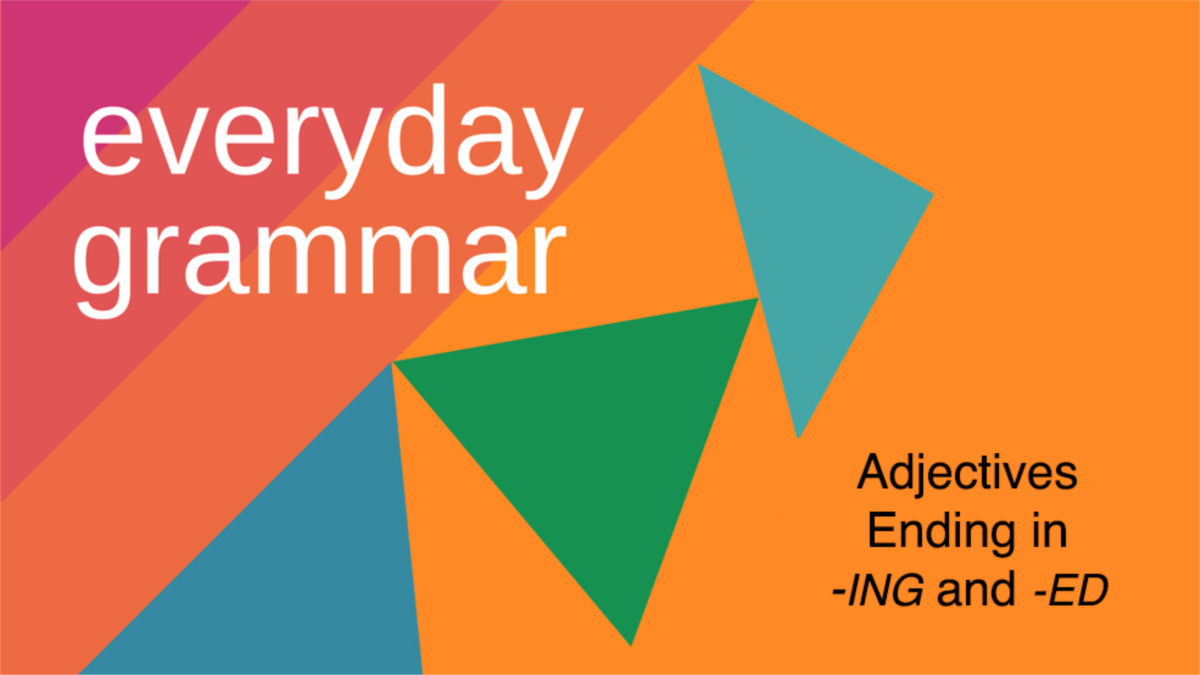


The Exciting World Of Participial Adjectives



Past Participle Adjective Page 1 Line 17qq Com
The above adjective endings are also applicable when an indefinite article (einen, einem etc) or possessive article with an ending (meiner, deinem etc) precedes the adjective Der blaue Bleistift ist verloren (The blue pencil is lost) Ich wohne in einem groß en Haus (I live in a big house) Die Schuhe liegen unter meinem neuen Bett (The shoes are under my new bed)Type in the correct ending of the Participial Adjective (ed, ing) In Harry Potter Museum the audiovisual guides bring the Studio Tour to life with the fascinat filmmaking facts If you visit the Wizarding World of Harry Potter in Orlando, USA, you will go on the thrill ridesDefinition of participial adjective in Oxford Advanced Learner's Dictionary Meaning, pronunciation, picture, example sentences, grammar, usage notes, synonyms and more



Participial Adjectives Ppt Download
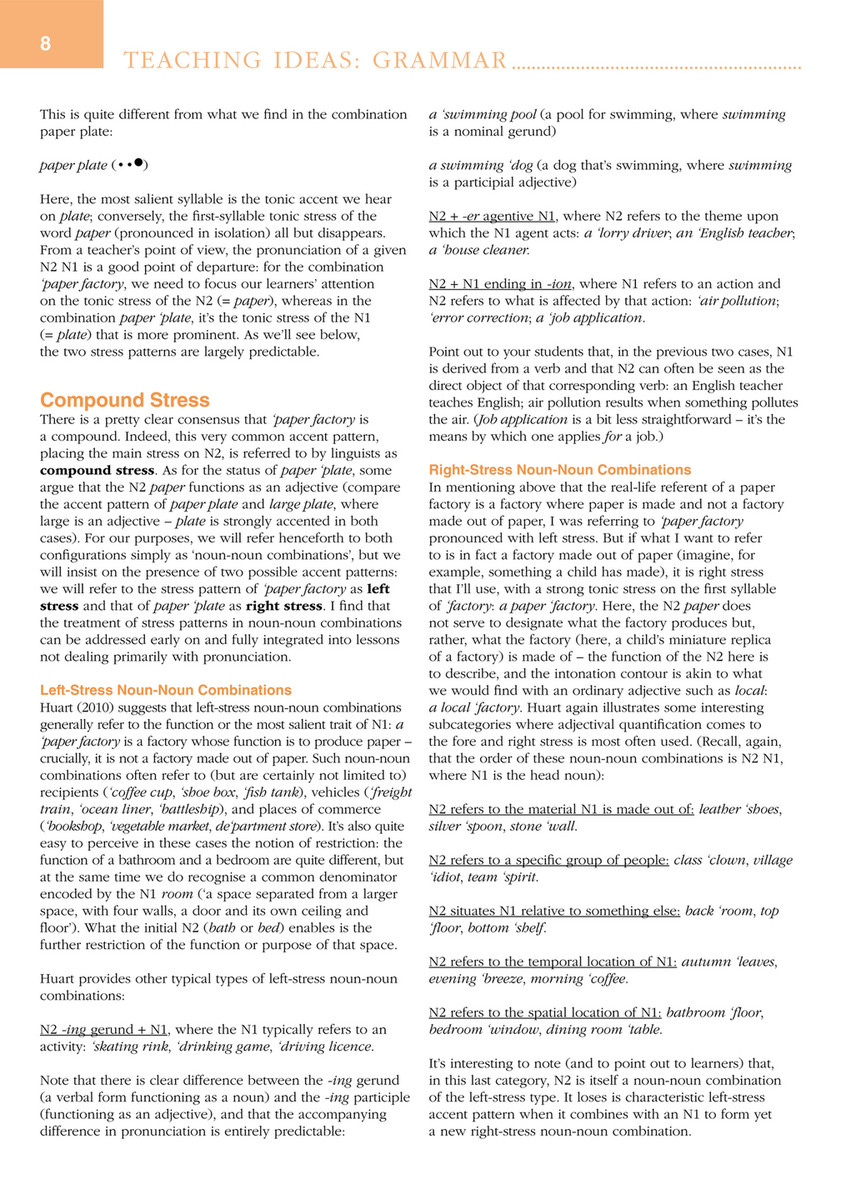


Tesol France Teaching Times Magazine Tesol France Teaching Times Issue 79 Spring 17 Page 8 Created With Publitas Com
"The Participial Adjective Part of English" I've always found the ING words in English grammar rather annoying and bothersome Of course Gerunds are ING words that look like verbs but act like nouns in sentencesA verbal form used as an adjective It does not specify person or number in English, but may have a subject or object, show tense, etc, as burning, in a burning candle, or devoted in his devoted friendReference notes on the use of adjectives ending in ed and ing Includes examples and links to exercises for practice Suitable for students of English (ESL) at intermediate level and above


Adjectives Ending In Ing And Ed Participle Adjectives Mp4 On Vimeo



Common Mistakes With English Adjectives Ed And Ing Endings Youtube
The participial phrase functions as an adjective modifying Lynn Having been (participle) a gymnast (subject complement for Lynn, via state of being expressed in participle) Placement In order to prevent confusion, a participial phrase must be placed as close to the noun it modifies as possible, and the noun must be clearly stated · Updated November 04, 19 In English grammar, participial adjective is a traditional term for an adjective that has the same form as the participle (that is, a verb ending in ing or ed/en) and that usually exhibits the ordinary properties of an adjective Also called a verbal adjective or a deverbal adjectiveIn English, many adjectives come from verbs In today's program, we will tell you about participial adjectives – adjectives that we make from verbs To understand these



Pdf Indirect Passives And The Selection Of English Participles



Advanced English Grammar Participles Engvid
The best and accepted answer states that "functioning relationship" means "a relationship that is working properly" I did some research The English corpus clearly shows that using "functioning" as an adjective is acceptable But it is seldom used in the phrase "functioning relationship", and more often used, understandably, in phrasesAdjectives Function as Nouns There is a class of adjectives that is formed from participles, both present participle (verb ending in –ing) and past participle (verb ending in –ed) Such adjectives are called participial adjectives Although derived from verbs, they function like other adjectives to describe the nounsReduced Participial Clause Punctuation Grammar Notes Practice 1 – complete the sentence (MC) Practice 2 – correct / incorrect Practice 3 – edit the paragraph Also known as that be deletion, or changing a finite relative clause to a nonfinite relative clause
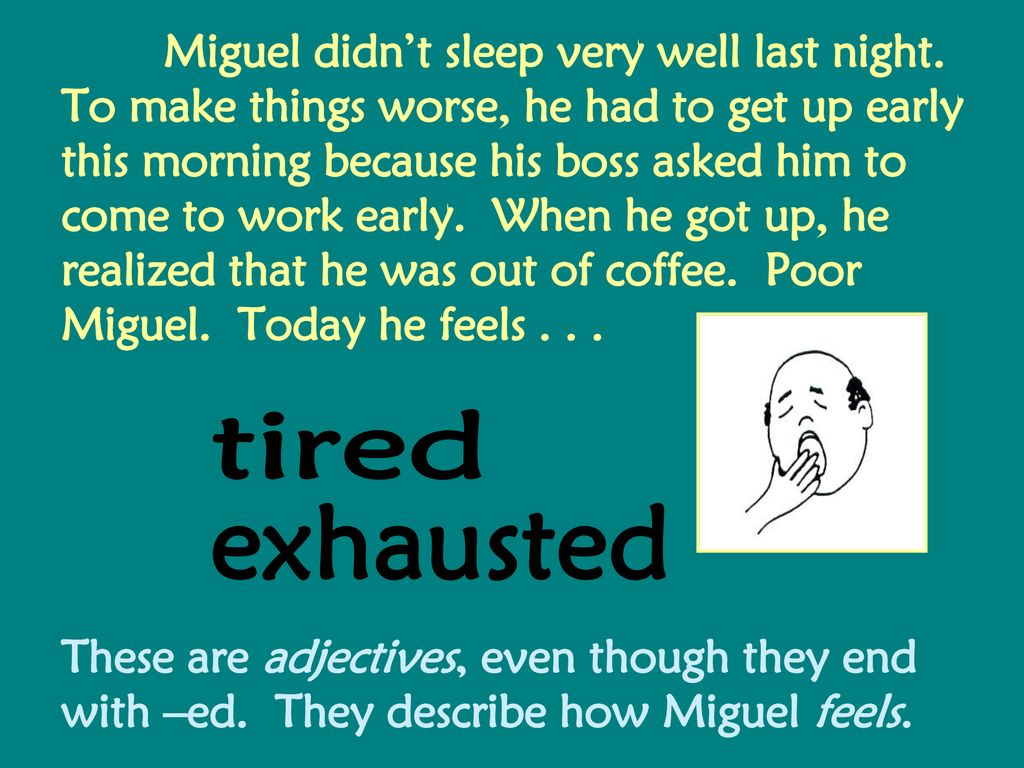


Participial Adjectives Ppt Download


Word Transformation Adjectives Keep Smiling English
The forms of the three types of Participles are as follows The Present Participle This nonfinite verb can be recognized from its ing ending (eg eating, playing, singing, studying, sleeping) However, this fact alone is not enough to recognize it forThose with –ED endings (from past participle verbs) and those with –ING endings (from present participle verbs) These types of adjectives are sometimes referred to as 'psBut some verbs have an irregular form ending in to (eg escrito, visto, puesto), or



Mohammad Alam Alams0076 Profile Pinterest



Chapter 8 Writing Basics What Makes A Good Sentence Let S Get Writing
5 What are you (frighten) of? · A participial phrase or clause is a wonderful tool for writers because it gives color and action to a sentence By employing verbals—words derived from a verb—along with other grammatical elements, an author can craft clauses that function as an adjective, modifying nouns and pronouns The participial phrase contains a participle and the other words in the phrase that1118 · Participial Phrases at the Beginning of a Sentence Participial phrases must be separated by a comma if the participle is the first word of the sentence, such as in the sentence, "Torn at the seams, his coat had seen better days" Notice how torn at the seams is acting like an adjective by modifying the noun "coat"



Bored Or Boring Learn About Ed And Ing Adjectives In English Engvid
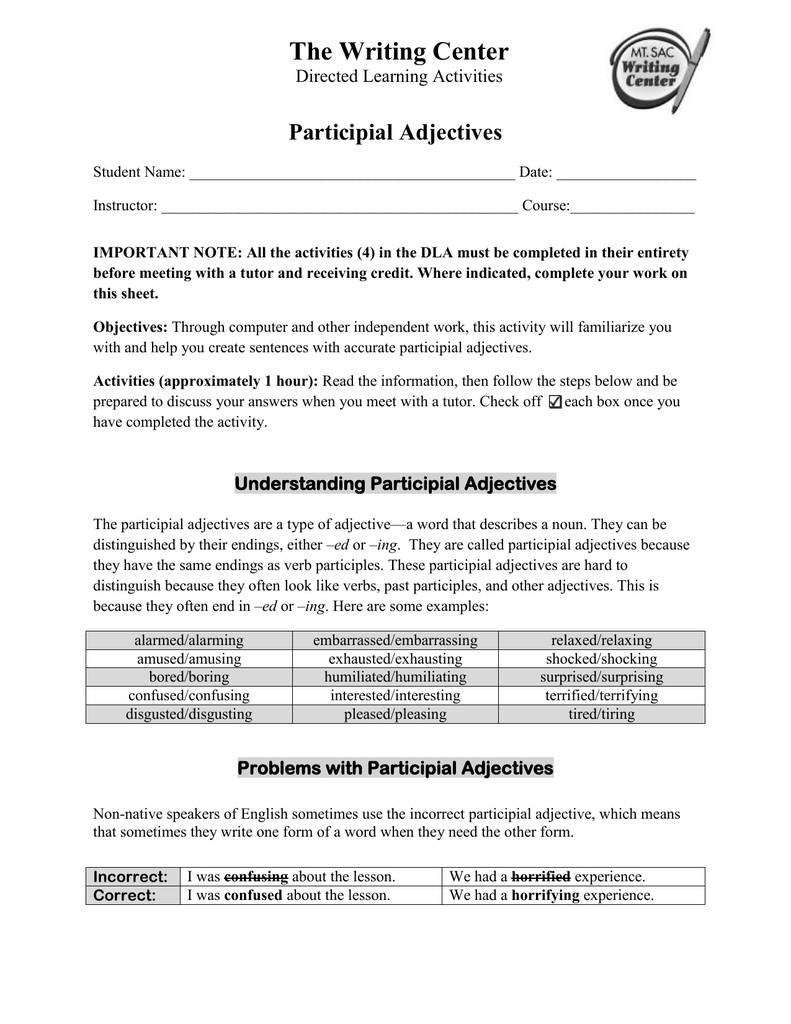


The Writing Center Participial Adjectives Directed Learning Activities
Ed/ing adjectives Participial adjectives can be distinguished by their endings, either ed or ing They come from verbs and they are called participial adjectives because they have the same endings as verb participles Original verbs Many verbs that we can use to express feelings or emotion can be turned into adjectivesParticiple definition, an adjective or complement to certain auxiliaries that is regularly derived from the verb in many languages and refers to participation in the action or state of the verb;Use the ed ending (the past participle) to describe the feeling or emotion that happens as a result of the person, place or thing mentioned above For example The view is inspiring ️ I feel inspired This class is exhausting ️ I am exhausted Traveling to new places is exciting ️ I



Pronunciation Of Ed In English


Word Transformation Adjectives Keep Smiling English
· These are formed with the verb "to be" the present participle So, participial adjectives ending in ING can look like a verb tense Listen to two examples with the word "annoying" and guessThose with –ED endings (from past participle verbs) and those with –ING endings (from present participle verbs) These types of adjectives are sometimes referred to as 'psychological' adjectives becauseA participial phrase acts as an adjective, serving to modify nouns "The dog crashed into the wall" is a grammatically correct sentence, but it helps the reader to know that the dog was running at a high speed Types of Participial Phrases
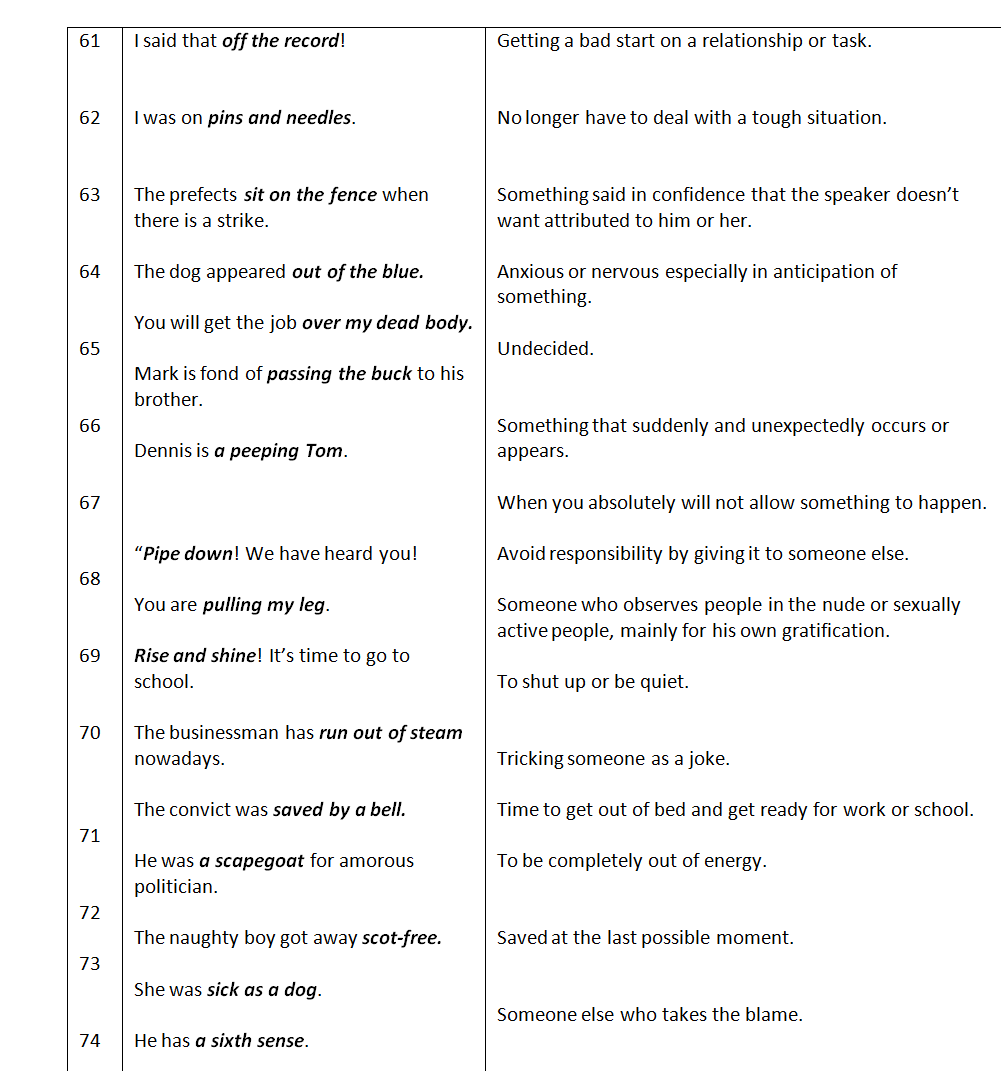


English Grammar Notes Download English Grammar Lessons Free Pdf
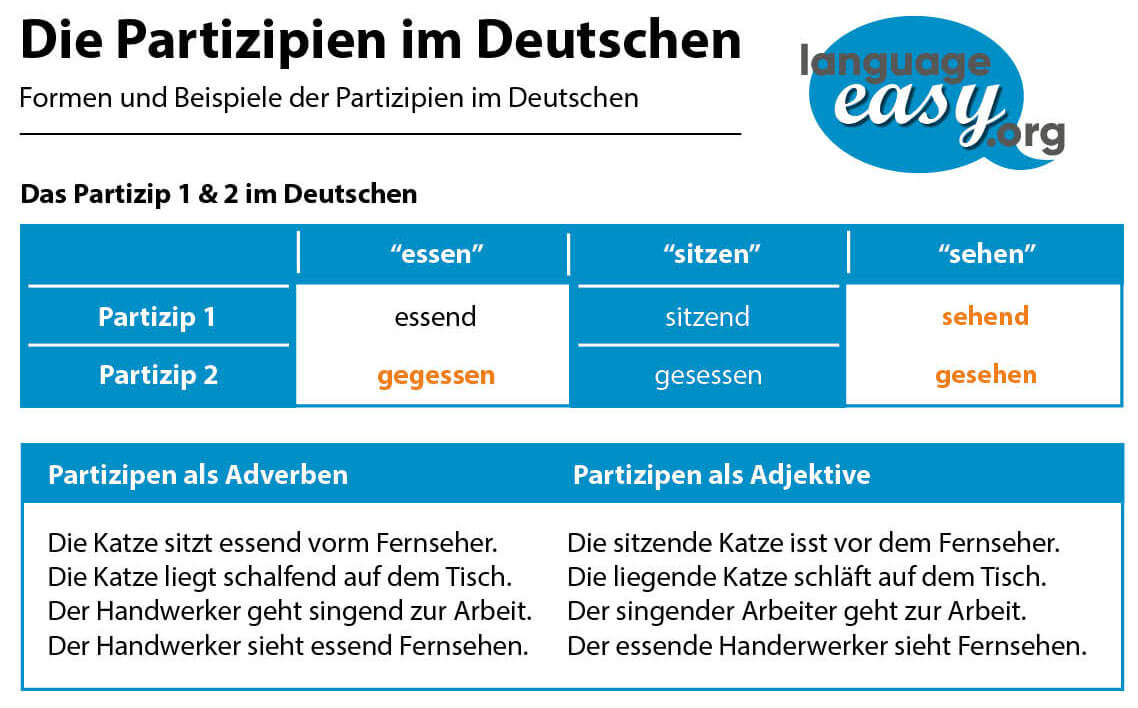


German Participles Learn German Easily With Language Easy Org
Alarmed I was alarmed by the loud bang amusing That TV programme is really amusing amused He was amused to hear his little son singing in the bath boring I've never seen such a boring film!Type in the correct ending of the Participial Adjective (ed, ing) 1In Harry Potter Museum the audiovisual guides bring the Studio Tour to life with the fascinat filmmaking facts 2If you visit the Wizarding World of Harry Potter in Orlando, USA, you will go on the thrill rides · A participial adjective is a type of adjective that is derived from a verb On this page, we will be looking at two types of participial adjectives;
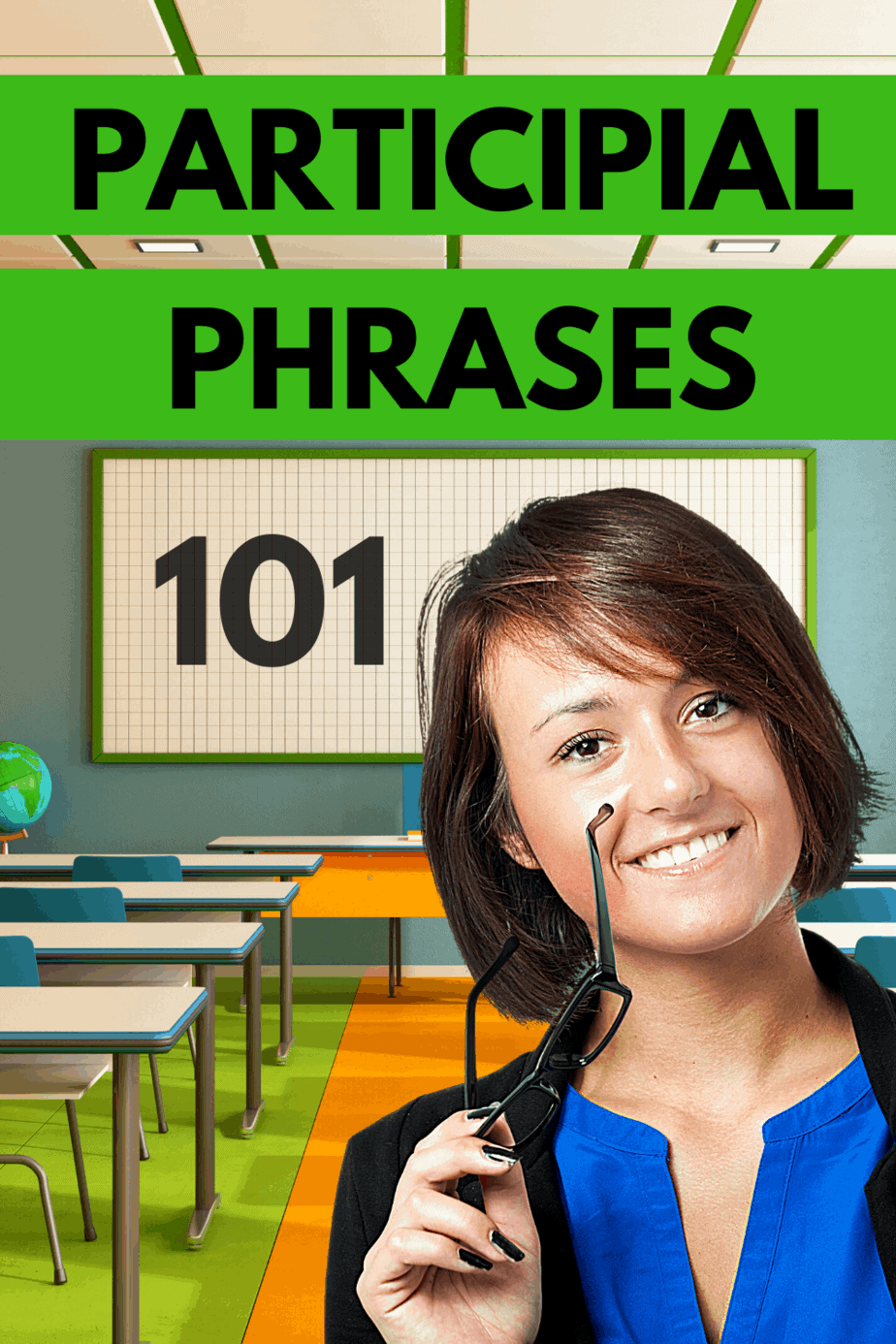


Participial Phrases 101 Here S What You Need To Know



Basic Grammar Flip Book Pages 51 100 Pubhtml5
A participial phrase contains a participle, a verb based word that's used as an adjective, and a modifier or a noun, or both An example of a participial phrase can be found in the sentence HeYou knew what an adjective is Now you know too what a participial adjective is an adjective that comes from a verb, right?Determiners a, the, some, few, this, etc that tell us how many of the noun or which one Both adjectives and determiners take declensions / endings that reflect the case of the following noun That's a big deal – it's how we know who is who in a sentence



Adjectives A Super Simple Guide To Adjective With Examples 7esl



Adjectives Ending In Ing And Ed Participle Adjectives Mp4 On Vimeo
· Present participles are verb forms ending in –ing Examples are crying, learning, singing, interesting etc Some –ing forms can also be used as adjectives State whether the –ing forms used in the following sentences are adjectives or present participles3 What do you find (fascinate)?In the English language, one can use the (past) participle of a verb as an adjective, this allows for example to express that I'm creating a scrapbook using the pictures that I have taken previously What's the correct way to state this?



16 Different Types Of Adjectives Plus Examples For Each Fat Stacks Blogging



Pdf Adjectival Passives And Adjectival Participles In English
This comprehensive lesson covers adjective sentence patterns and suffixes, participial adjectives, multiple adjective order and punctuation, and hyphens in multipleword adjectives Note that in its entirety, this lesson is suitable for lowintermediate to intermediate learners If you teach beginners, you may want to limit this lesson to pages 2–34 Have you ever been (amaze) by something?The vase is broken With the past participial adjective, broken means the vase is in the state of being broken If closed, (as in the earlier example), it is acting as a participial adjective, then the sentence can be rephrased as At five o'clock, the facility is
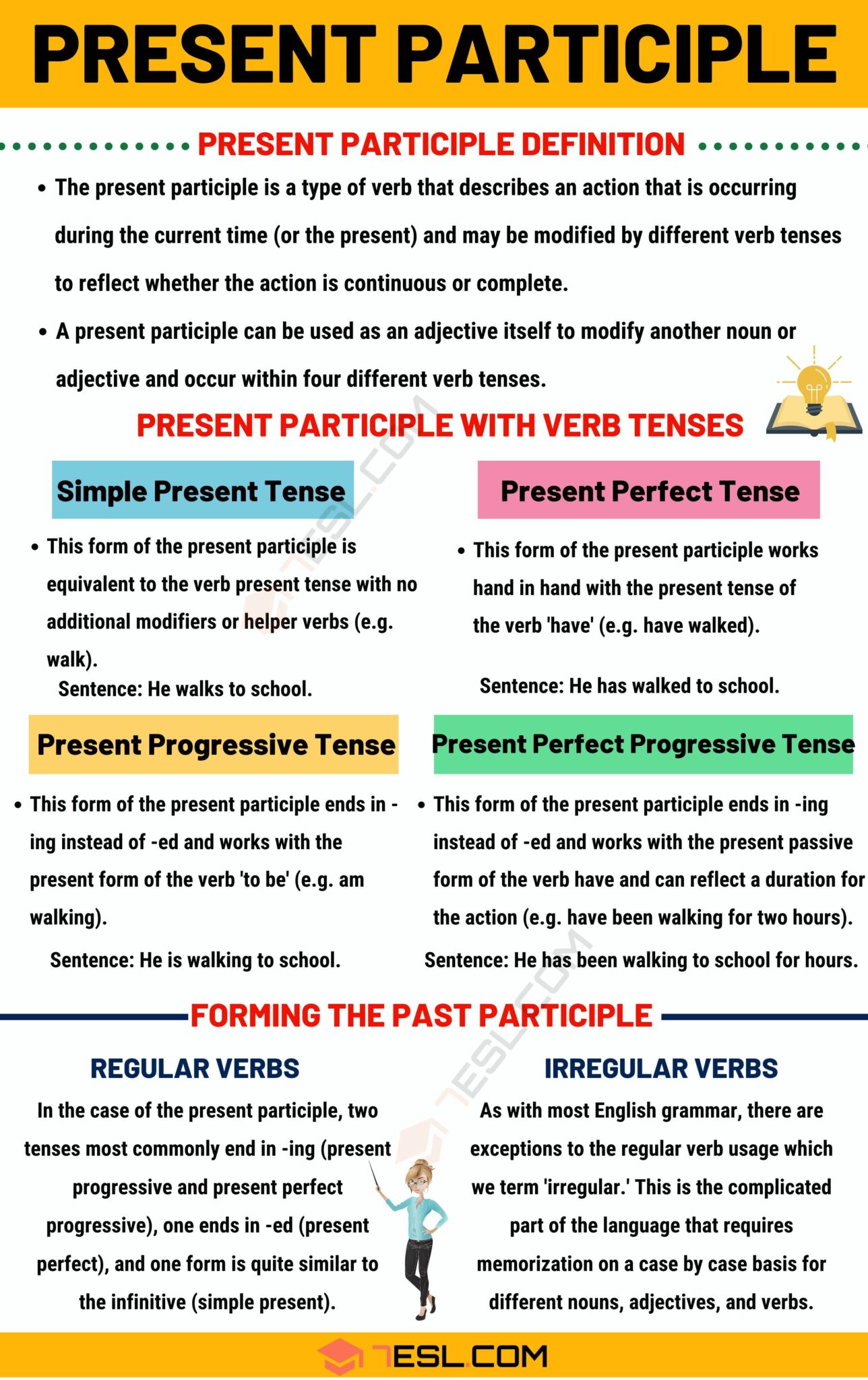


Present Participle Definition And Useful Examples Of Present Participle 7esl
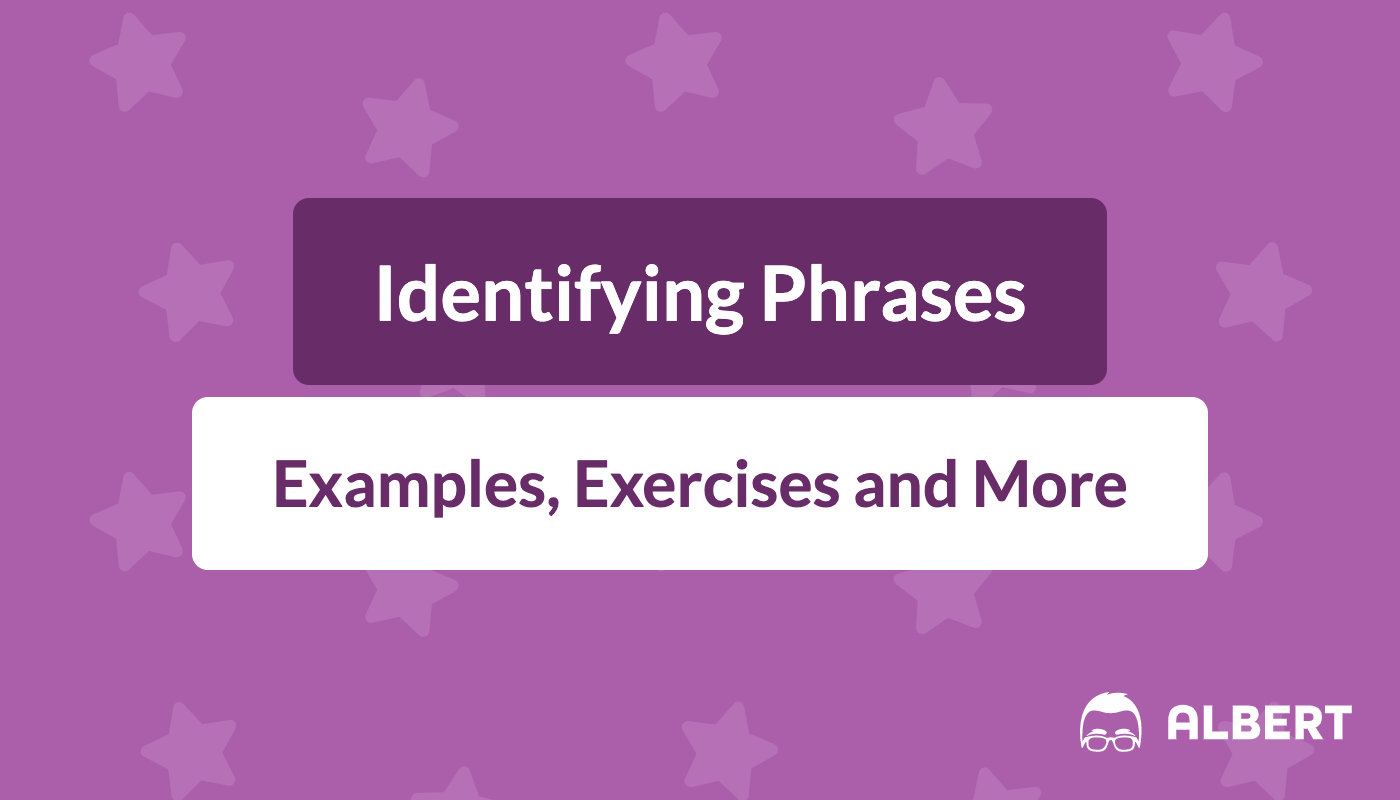


Identifying Phrases Definition Examples Exercises Albert Io
The past participle (participio pasado or participio pasivo) is regularly formed with one of the suffixes ado or ido (ado for verbs ending in "ar" and ido for verbs ending in "er" or "ir";There are two types of participial adjectives, those ending in ing and those others ending in ed Remember that we considered ingadjectives as having an active sense whereas edadjectives were referred to as passive · Adjectives That Come from Verbs Click here to download a PDF of this lesson One type of adjective derives from and gets its meaning from verbs It is often called a participial adjective because it is formed from a verb's participle form To learn more about adjectives in general, see the adjective glossary entry



Hungarian Grammar Wikipedia
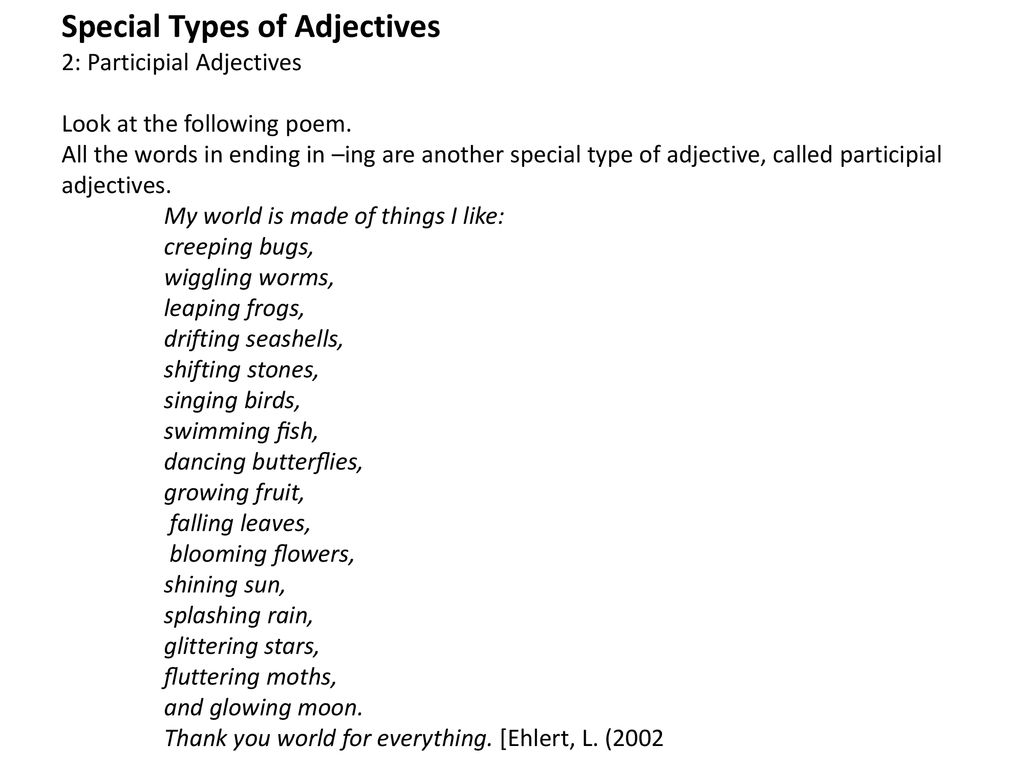


Adjectives Are Content Words That Provide Imagery And Character To Discourse By Describing The Nouns In A Sentence Ex Room 105 Is Cold Ppt Download
Bored The students looked bored as the teacher"Ending" is a gerundparticipial clause modifying "something" Semantically, such clauses are similar to relative clauses compare the first sign of something that is ending But we don't call them relative clauses since there's no possibility of them containing a relative phrase (cf *"the first sign of something that ending")Even after countless written exercises, students often make mistakes with these "feeling" adjective endings
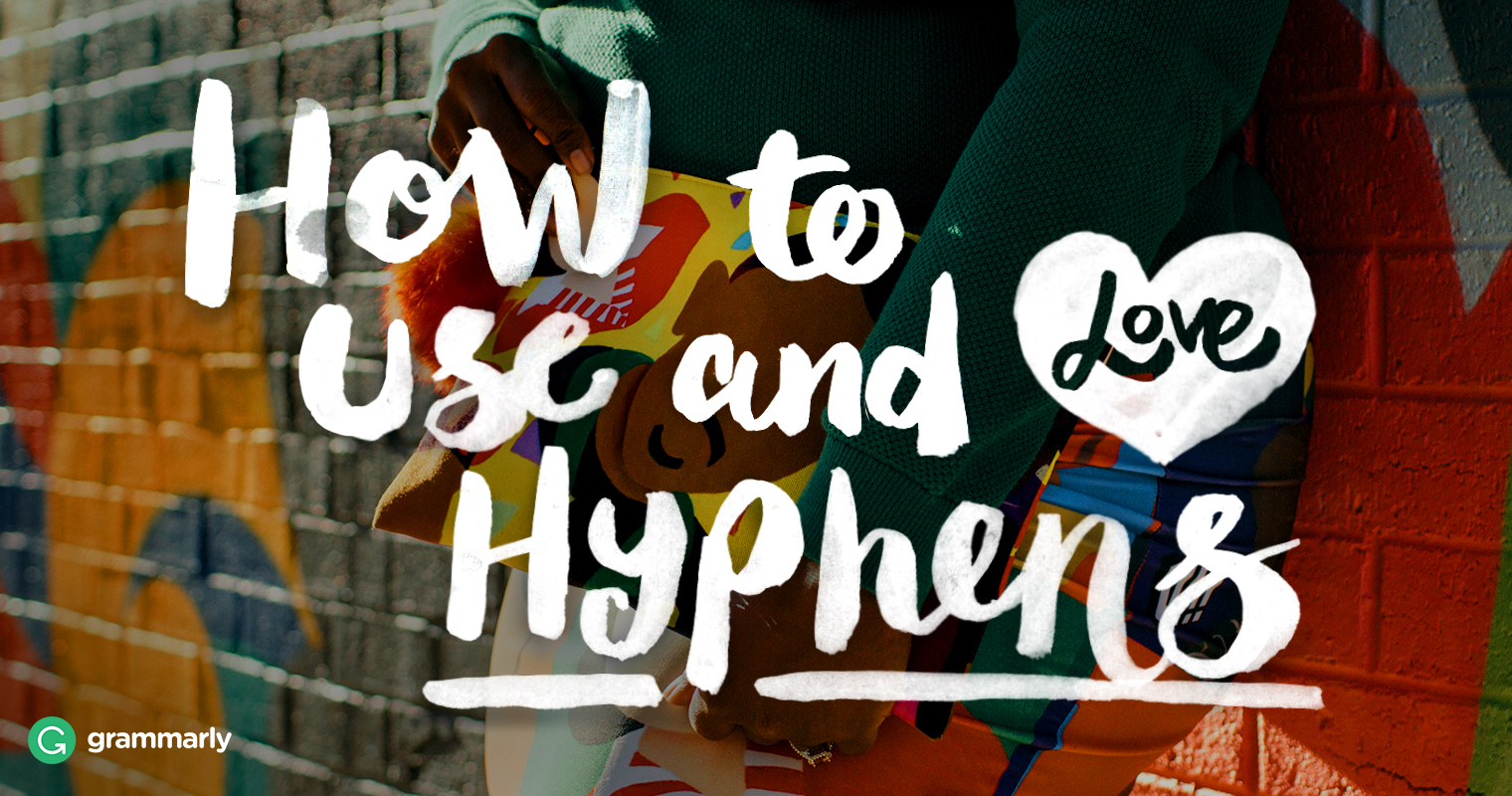


Hyphen Usage Rules And Examples Grammarly



David English Gammar Book 1 Flip Ebook Pages 51 100 Anyflip Anyflip
Participle Adjectives Long List Here's a list of participle adjectives (ed and ing adjectives) in English Remember, we usually use the past participle (ed) to talk about someone's feelings and the present participle (ing) to talk about cause of the feelingDec 4, 17 A participial adjective is a type of adjective that is derived from a verb On this page, we will be looking at two types of participial adjectives;Contrasting Participial Adjectives Distinctive Meanings in Contrasting Adjective Pairs Ending in –ing and –ed In terms of meanings, there is a distinguishing feature in English between pairs of adjectives such as interesting / interested, boring / bored, exciting / excited, and shocking /



Pdf Adjectives And Their Keyness A Corpus Based Analysis Of Tourism Discourse In English



1 The Subject The Man Walked Down The Street 2 A Participle Word Ending In Ing Or Ed Walking Up The Street He Tripped Pdf Free Download



Past Participle Adjective Page 1 Line 17qq Com



Calameo Anglijskij Yazyk 8 Klass Vaulina



Particifial Adjective Syntax Grammar



Participial Phrases And Appositives Verb Semantic Units
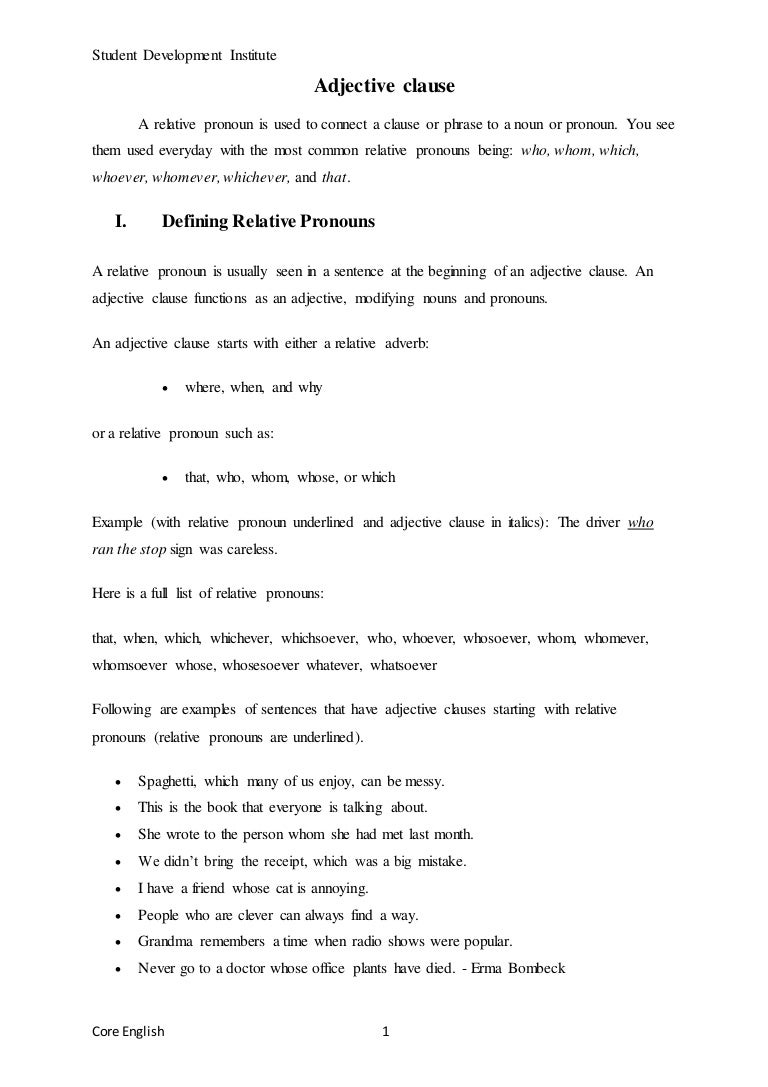


English Grammar Adjective Clause
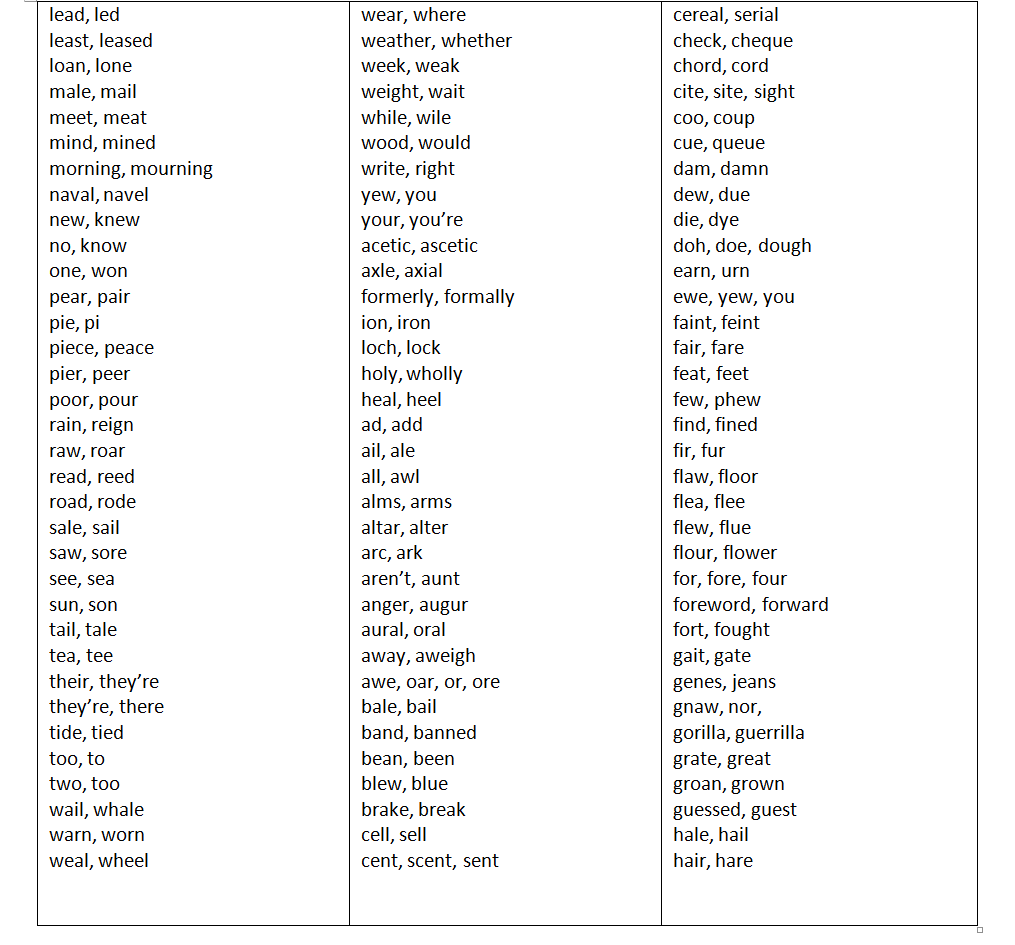


English Grammar Notes Download English Grammar Lessons Free Pdf



Compound Adjectives In English Eslbuzz Learning English
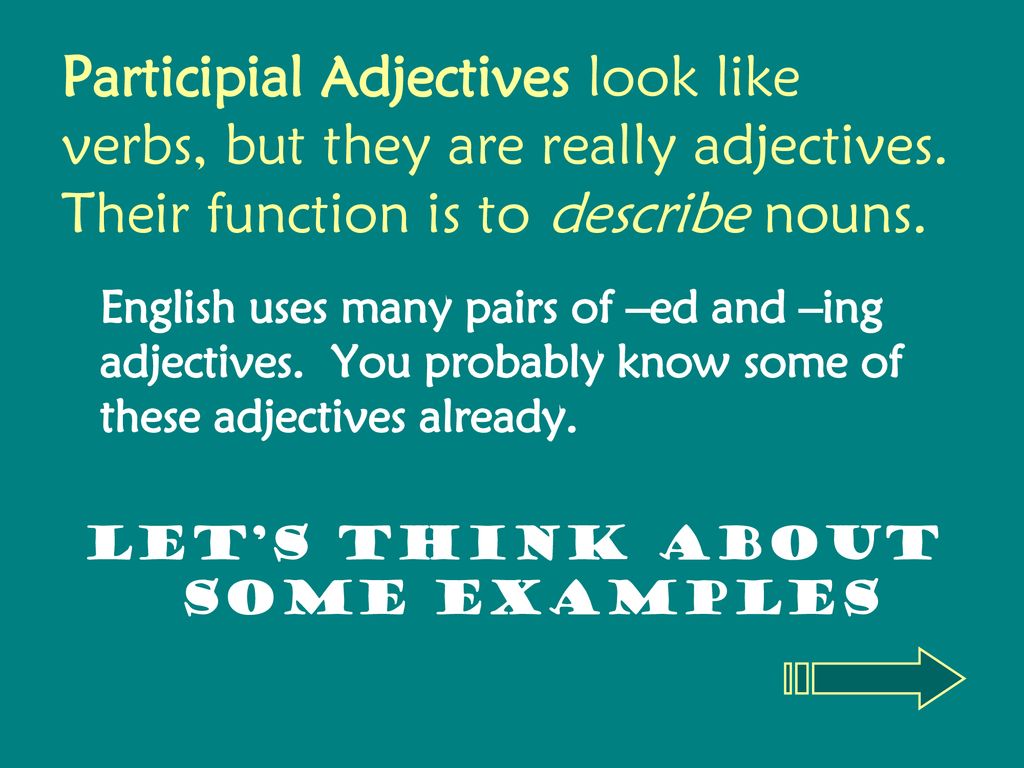


Participial Adjectives Ppt Download
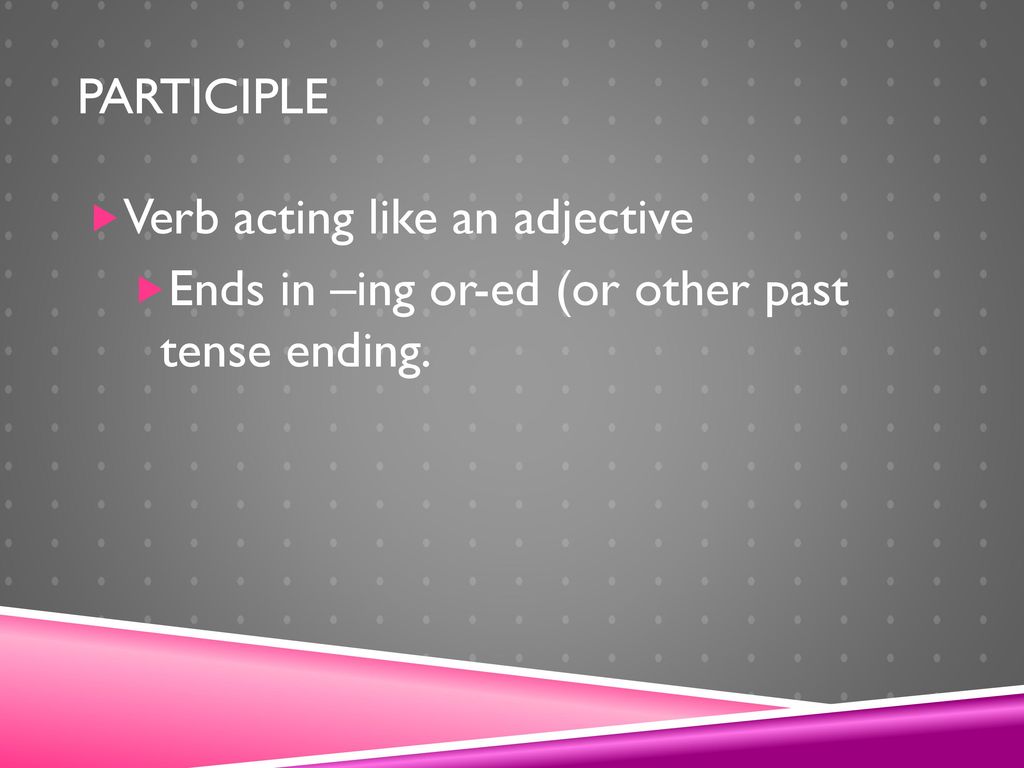


Grammar Ppt Download



English Grammar Notes Download English Grammar Lessons Free Pdf
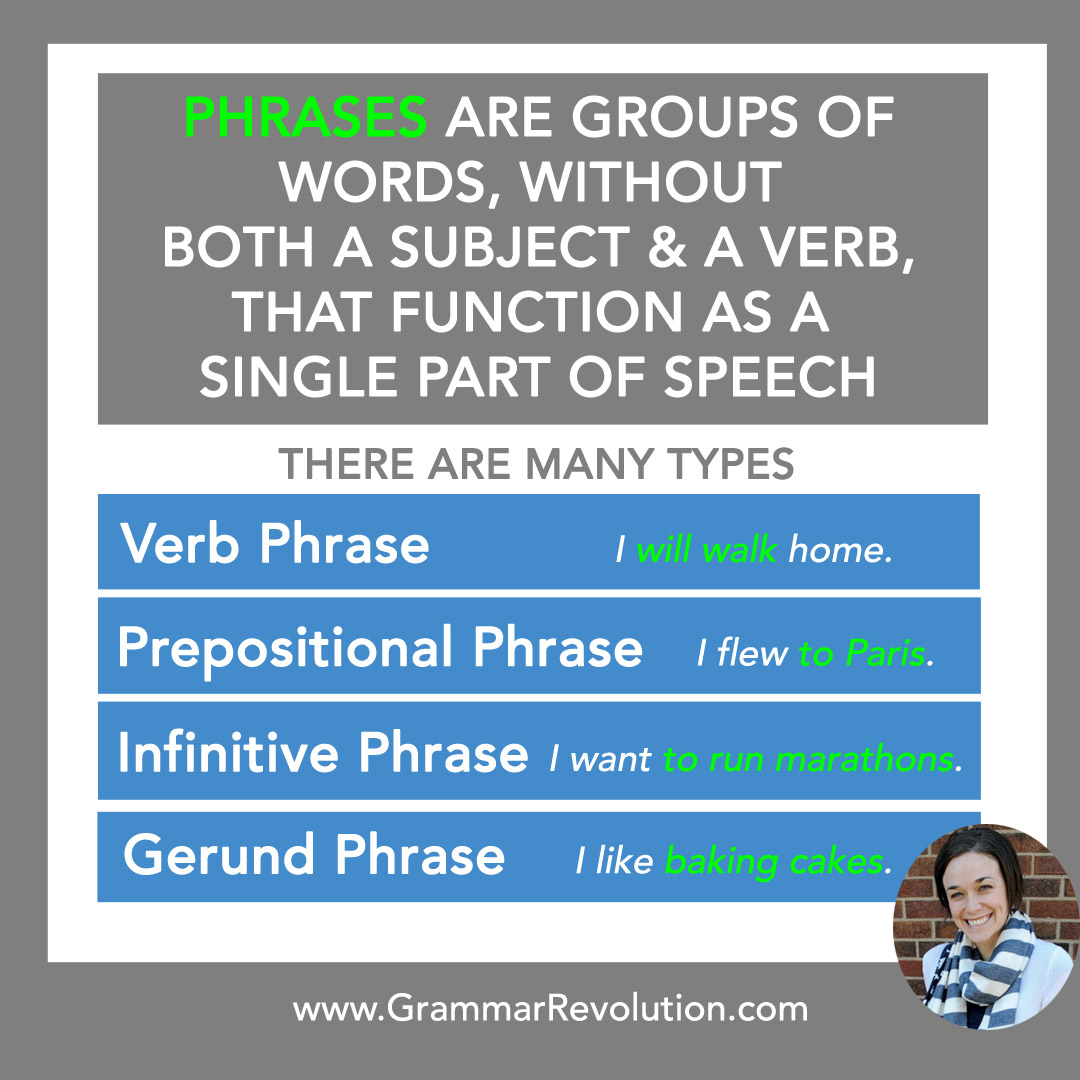


English Phrases Everything You Need To Know



Compound Adjectives Useful Rules List Examples 7esl



Participles What Is A Participle Present Past Participle 7esl



Adverbs Of Manner Useful Rules List Examples 7esl



Ing Verbs In English Ginseng English Learn English



Pdf Adjectives Or Verbs The Case Of Deverbal Adjectives In Ed



Adjectives Are Content Words That Provide Imagery And Character To Discourse By Describing The Nouns In A Sentence Ex Room 105 Is Cold Ppt Download



Compound Adjectives English Grammar
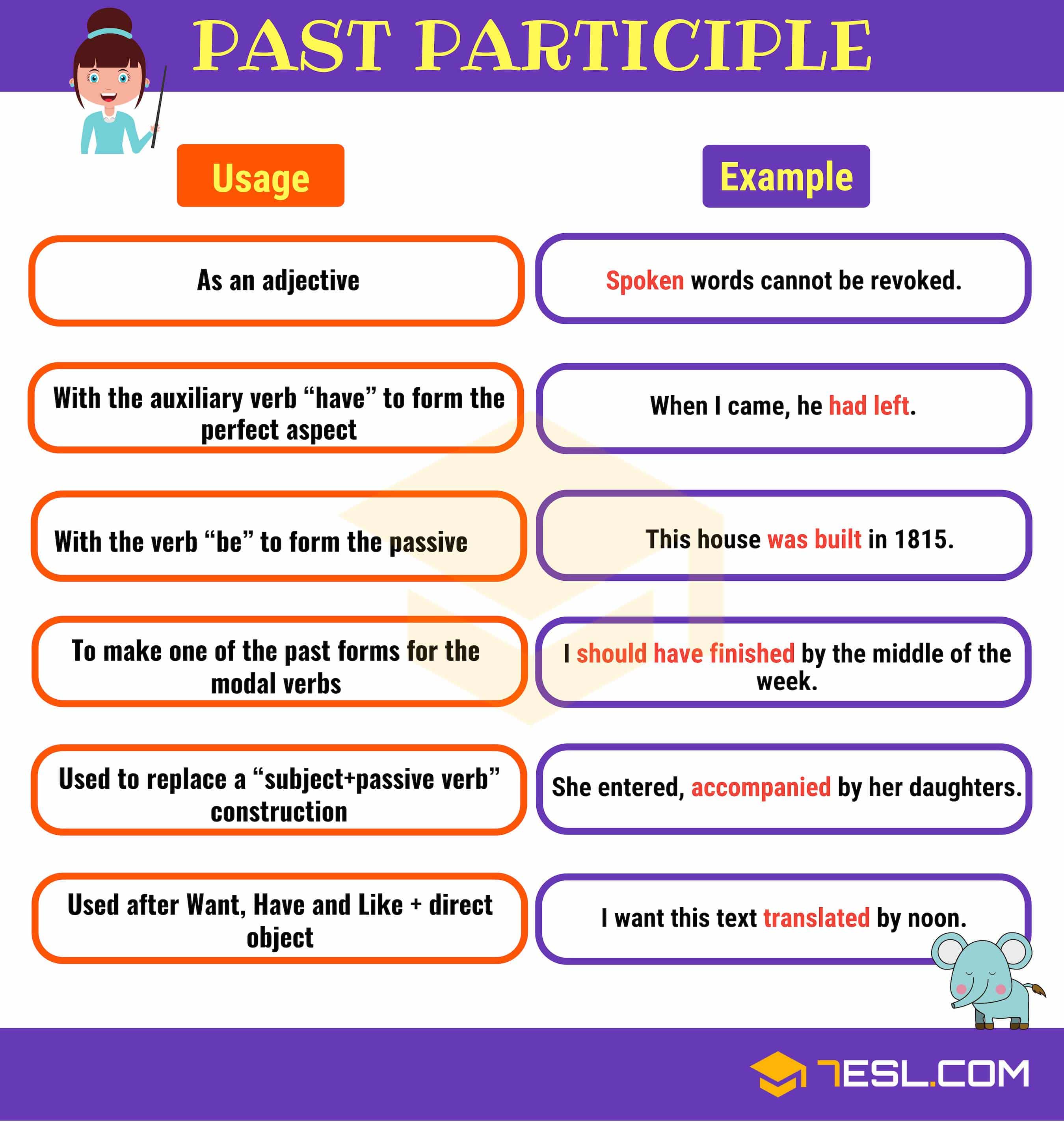


Participles What Is A Participle Present Past Participle 7esl
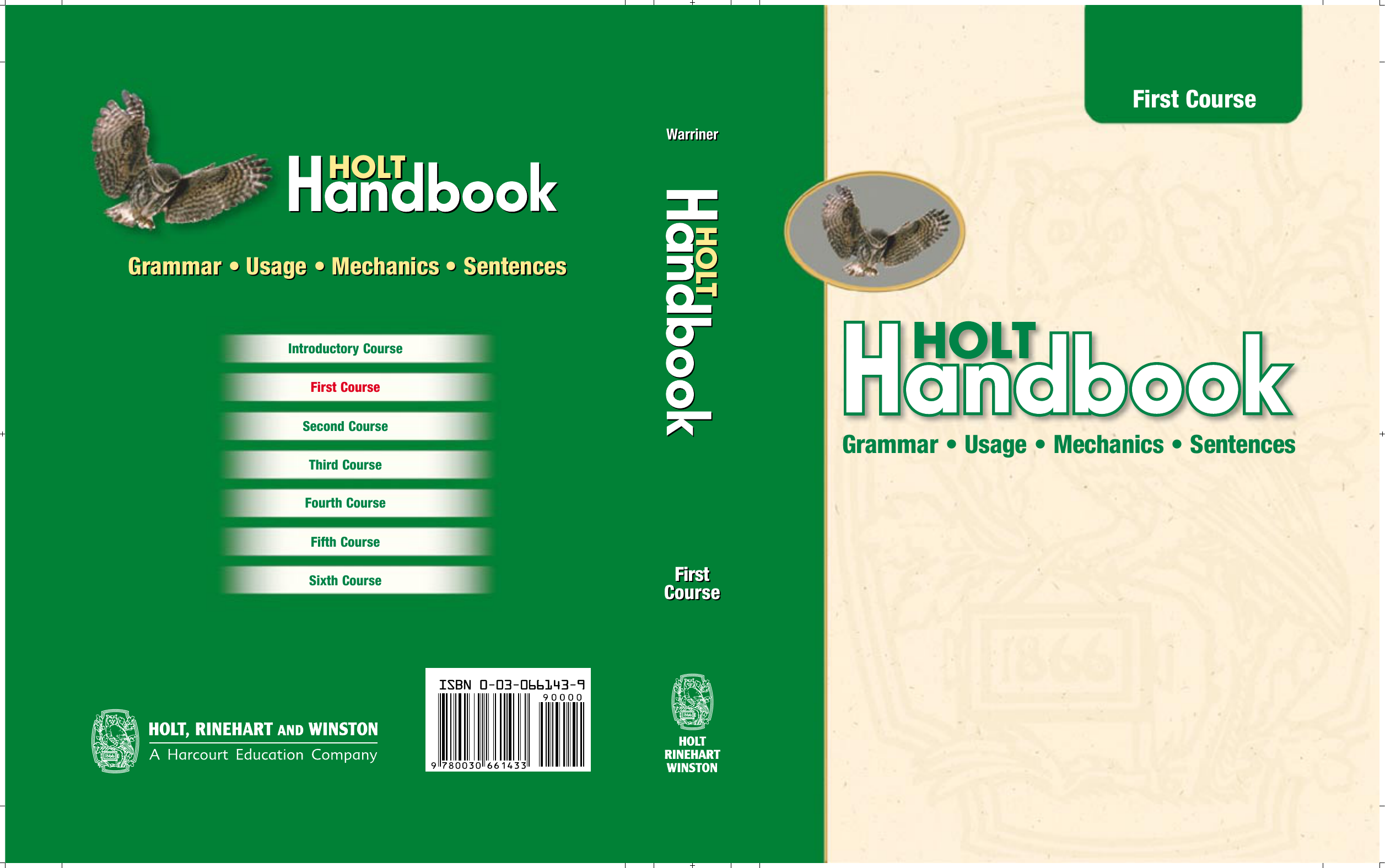


The Sentence



Chapter 8 Writing Basics What Makes A Good Sentence Let S Get Writing



List Of Words Ending In Ing And Ed In English Eslbuzz Learning English


Blog Archives The Gaming Grammarian



Adjectives Ending In Ed And Ing Useful List Great Examples 7esl
/Getty_adjective-166370084-56afa4393df78cf772c702a9.jpg)


Definition And Examples Of Adjectives



Adjectives Ending In Ed And Ing Useful List Great Examples 7esl



Identifying Phrases Definition Examples Exercises Albert Io
/irregular-687909584-5ab2f9c53418c600360fe102.jpg)


Past Participles In English Grammar
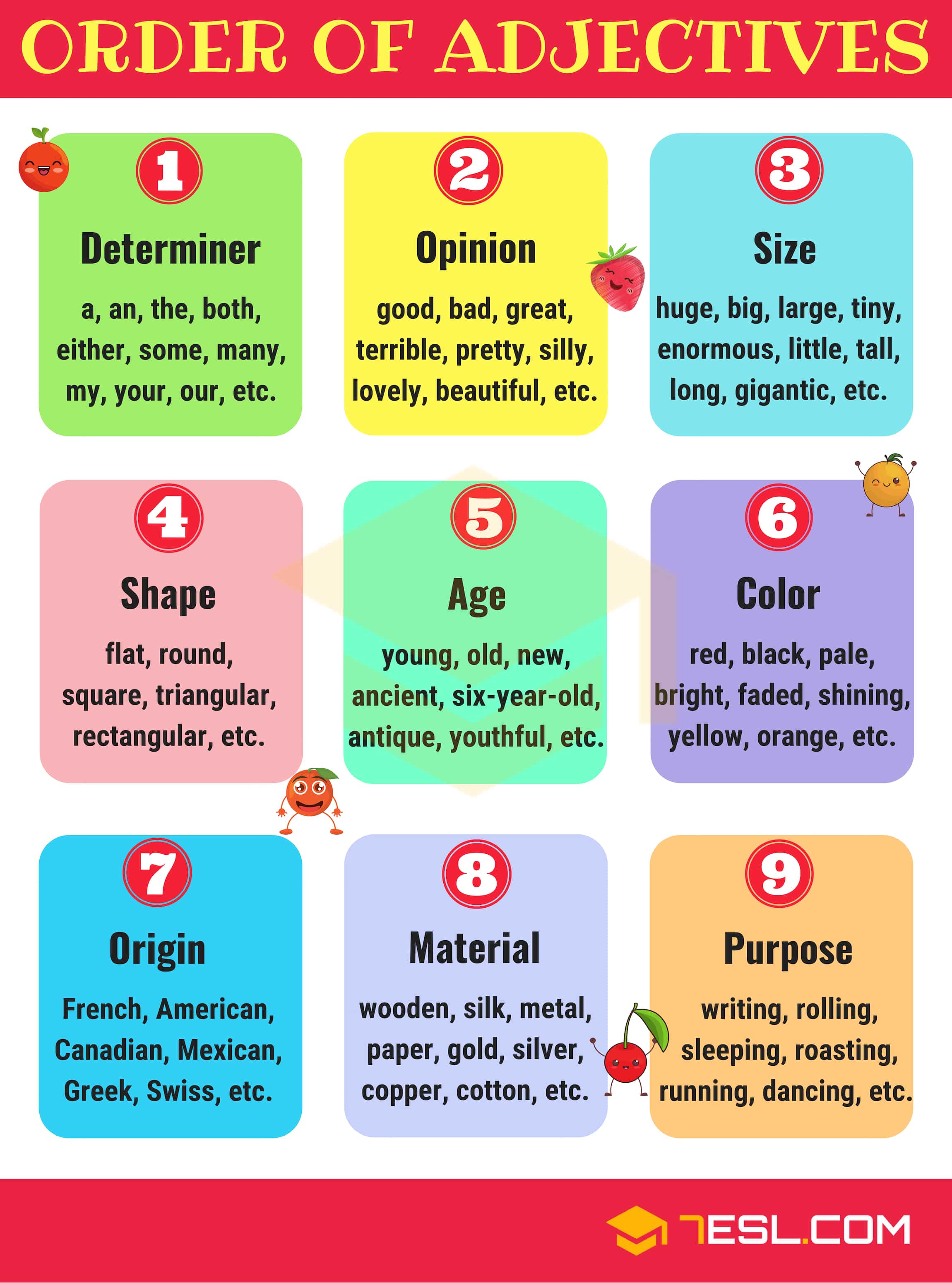


Adjectives A Super Simple Guide To Adjective With Examples 7esl
/irregular-687909584-5ab2f9c53418c600360fe102.jpg)


Past Participles In English Grammar



Pdf The Meaning Of The English Present Participle



How To Pronounce The Ed Ending Correctly In English Eslbuzz Learning English English Phonics Regular Verbs Learn English



List Of Participial Adjectives Adjectives With Ed And Ing Endings English Adviser



Japanese Verb Conjugation Wikipedia
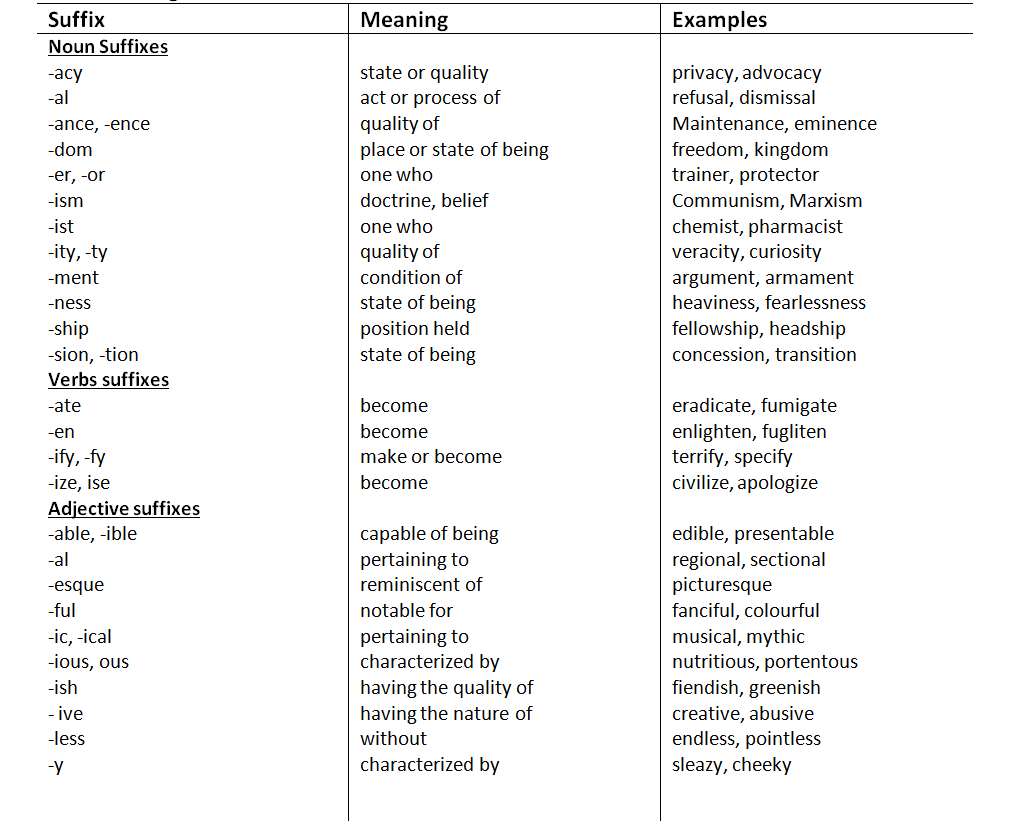


English Grammar Notes Download English Grammar Lessons Free Pdf



Passive Voice 11 1 Passive Voice 11 2 Participial Adjectives At The Movies Busy Pictures Match Storytime Reviews Pictures Pdf Free Download






Participle Adjectives Mcq Grammar Quiz Test Exercise



Adjectives Ending In Ing And Ed Participle Adjectives Youtube



Participial Adjectives Very Ranked Mark My Words



9 Ide Adjective Participle Bahasa Bahasa Inggris Tata Bahasa Inggris
/grammar-4b0fdf0333dd4516a5adcca63af45fc9.jpg)


Grammar Basics Sentence Parts And Sentence Structures
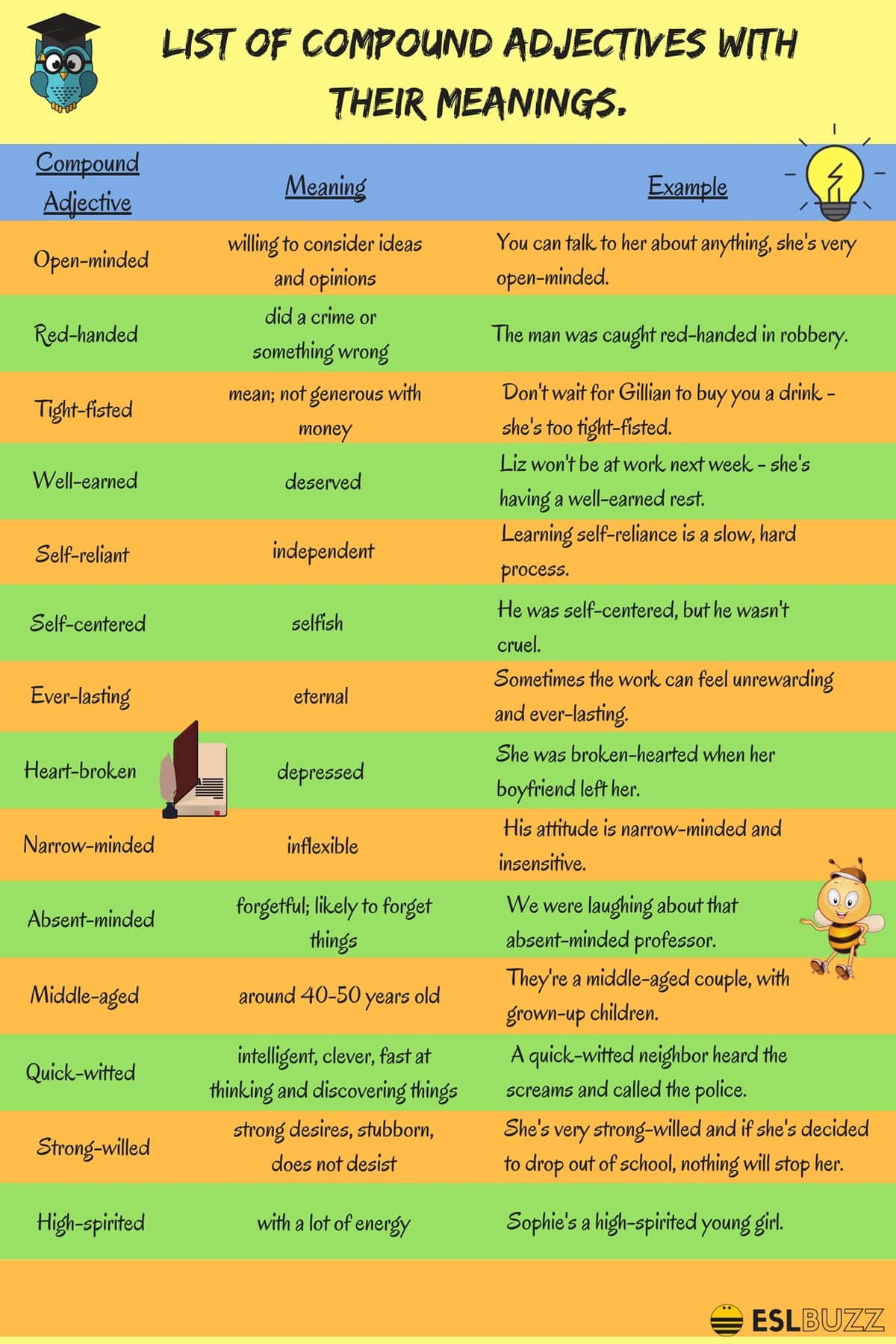


Compound Adjectives In English Eslbuzz Learning English



0 件のコメント:
コメントを投稿